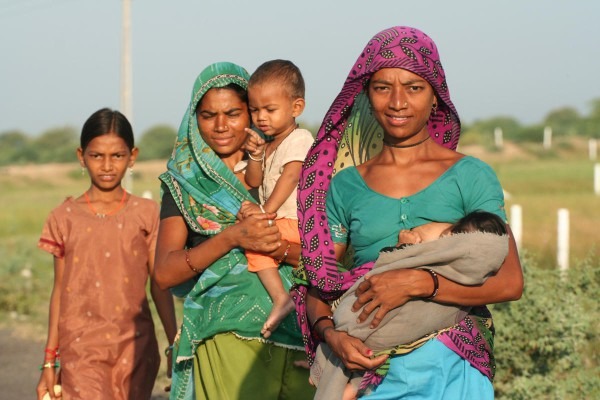The 2030 Agenda for Sustainable Development, sexual and reproductive health and rights, and proposed indicators
The recently adopted 2030 development agenda, which includes an ambitious set of goals and targets, was hailed by UN Secretary-General Ban Ki-moon as a universal, integrated and transformative vision for a better world. The Population and Sustainability Network (PSN) was delighted by the Secretary-General’s reference to “integration”. PSN wants to ensure, now attention is turning to the finalisation of the targets’ indicators (which were not simultaneously adopted and will help measure progress towards meeting the targets) that the indicators in their final form, and the way in which the indicators are used, will support the Secretary-General’s vision.
At PSN our mission is to achieve “A world where everyone can decide freely whether, when, and how many children they want, for the benefit of all people and the planet” and so our work spans many of the SDGs and their respective targets. Whilst reaching target 3.7 (universal access to sexual and reproductive health (SRH) services) and target 5.6 (universal access to SRH and reproductive rights) are the core targets to achieve our mission, the SDGs and their targets are interconnected and so our work focusses on many other targets besides.
Integrated challenges are best solved with integrated solutions. Achieving the targets ending poverty (goal 1), achieving food security (goal 2), ensuring health (goal 3), achieving gender equality (goal 5), ensuring sustainable consumption (goal 12) and taking urgent action to combat climate change (goal 13) will all be substantially less challenging if everyone has access to quality voluntary family planning information, rights and services: in other words, successfully reaching targets 3.7 and 5.6. To reach all the deeply interwoven SDGs, we must remember not to lose sight of the wood (the SDGs) for the trees (the targets and indicators).
In our paper, “Woods and Trees” The 2030 Agenda for Sustainable Development, sexual and reproductive health and rights and proposed indicators we present the dangers of narrowly focusing on a handful of indicators linked to each individual target and ignoring how the goals interrelate. We also present evidence of how development programmes integrating sexual and reproductive health and rights (SRHR) and environment interventions lead to greater gender, health and conservation outcomes than single sector development approaches. A failure to recognise the critical linkages between the SDGs will ultimately slow down progress to achieving them. SDG implementation and funding mechanisms must take this into account.
It is abundantly clear that the challenges we face, as set out in the SDGs, interrelate. It is therefore critical that when attention inevitably and imminently turns to working towards reaching those goals, that policy makers remember that when the challenges interrelate, so too must the solutions. Indicators should do what they set out to do, provide an indication which becomes the basis of policy. Our paper focuses on some of the indicators which have been proposed under the targets most directly relevant to our mission and highlights the importance of the development sector not having an excessively narrow indicator driven view because, like the Secretary-General, we strongly believe in integration.
Click here for the full paper.
David Johnson is the Chief Executive of the Population and Sustainability Network (PSN). After spending several years in Africa researching and writing about the impacts on people and our planet of human population growth, population dynamics and our increasing (and all too often unequal) levels of consumption, he returned to London to head PSN. David is now taking PSN in a new direction, continuing their advocacy work but also seeking to coordinate integrated development projects with PSN’s network of members around the world working in conservation, sexual and reproductive health and women’s rights. Follow him on Twitter: @DavidJohnsonSA.
Carina Hirsch is PSN’s Advocacy and Policy Manager. She holds postgraduate degrees in Economics and Public Management. Prior to joining PSN, Carina worked for the Food and Agriculture Organization of the United Nations carrying out research and implementing projects on women’s empowerment in agriculture and food security in several West African countries and India, collaborating closely with women’s organizations. She has also advocated for rural women and sustainability issues in various international policy making forums as Policy Officer at the World Farmers’ Organization (WFO).
You can read more about PSN on their website and follow them on Twitter: @PopSusNetwork.
MAHB-UTS Blogs are a joint venture between the University of Technology Sydney and the Millennium Alliance for Humanity and the Biosphere. Questions should be directed to joan@mahbonline.org
The views and opinions expressed through the MAHB Website are those of the contributing authors and do not necessarily reflect an official position of the MAHB. The MAHB aims to share a range of perspectives and welcomes the discussions that they prompt.
